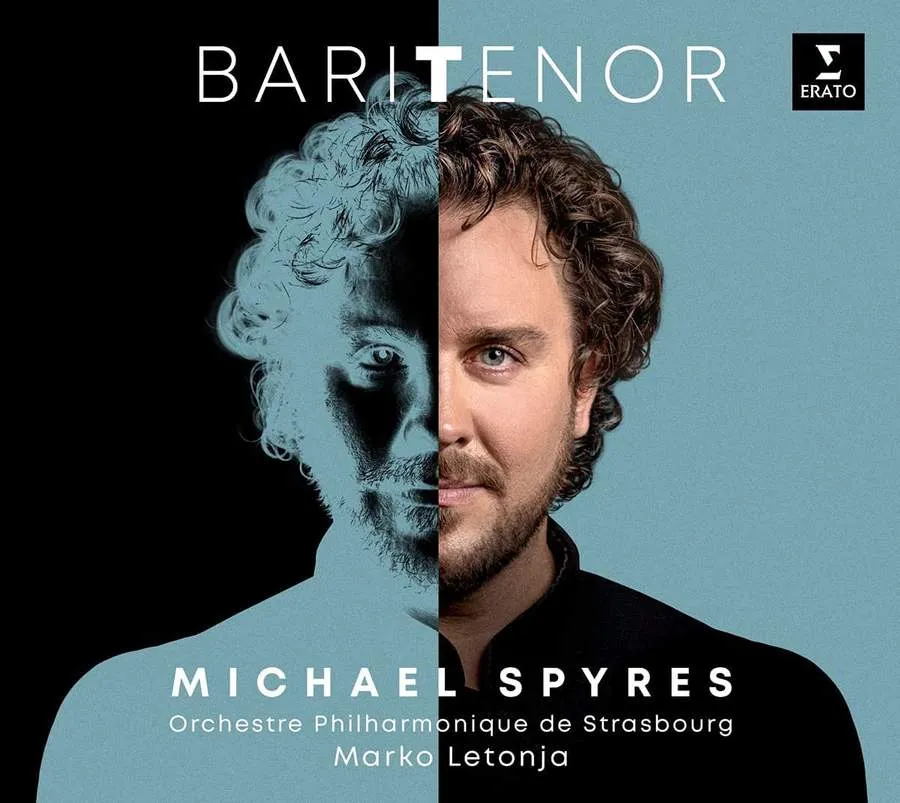
Baritenor Arias by Adam, Donizetti, Korngold, Lehár, Leoncavallo, Méhul, Mozart, Offenbach, Orff, Ravel, Rossini, Spontini, Thomas, Verdi, Wagner Michael Spyres (tenor); Strasbourg Philharmonic Orchestra/Marko Letonja Erato 9029515666 84:30 mins
The 18th century and the early Romantic period rarely worried themselves about labeling voices, and Michael Spyres argues that nearly two centuries on we are finally catching up. ‘I believe the baritenor is a forgotten vocal phenomenon,’ he writes, ‘which has been hiding in plain sight within compositions throughout the entirety of opera’s existence.’ And he intends to prove it.
It’s a deeply satisfying proof too: Spyres has a remarkable vocal range from the high tessitura demanded for Rossini’s Otello and those fearsome nine high Cs for Tonio in Donizetti’s aria ‘Ah ! mes amis’ for La fille du régiment to the lyrical lower voice for another Tonio, in Leoncavallo’s Pagliacci. He’s a consummate vocal chameleon too, giving us a stylish Viennese tenor for Count Danilo in The Merry Widow and then turning French for ‘Voilà ce que j’appelle une femme charmante’ from Ravel’s L’heure espagnol.
What Spyres brings to each role here is a pitch-perfect sense of character as he teaches a familiar lesson, that the voice is always in service of the role – however you choose to categorise it. His Hoffmann in the ‘Ballad of Kleinzach’ is just the right mixture of drink-sodden despair and impossible romantic hopes; his Count di Luna in Il trovatore is much more than the familiar deep-dyed stage villain; and in a truly remarkable finale to his ‘Largo al factotum’, Rossini’s Figaro is indeed all things to all men vocally. But could a singer who lacked Spyres’s gifts have embraced this range of repertoire?
Christopher Cook